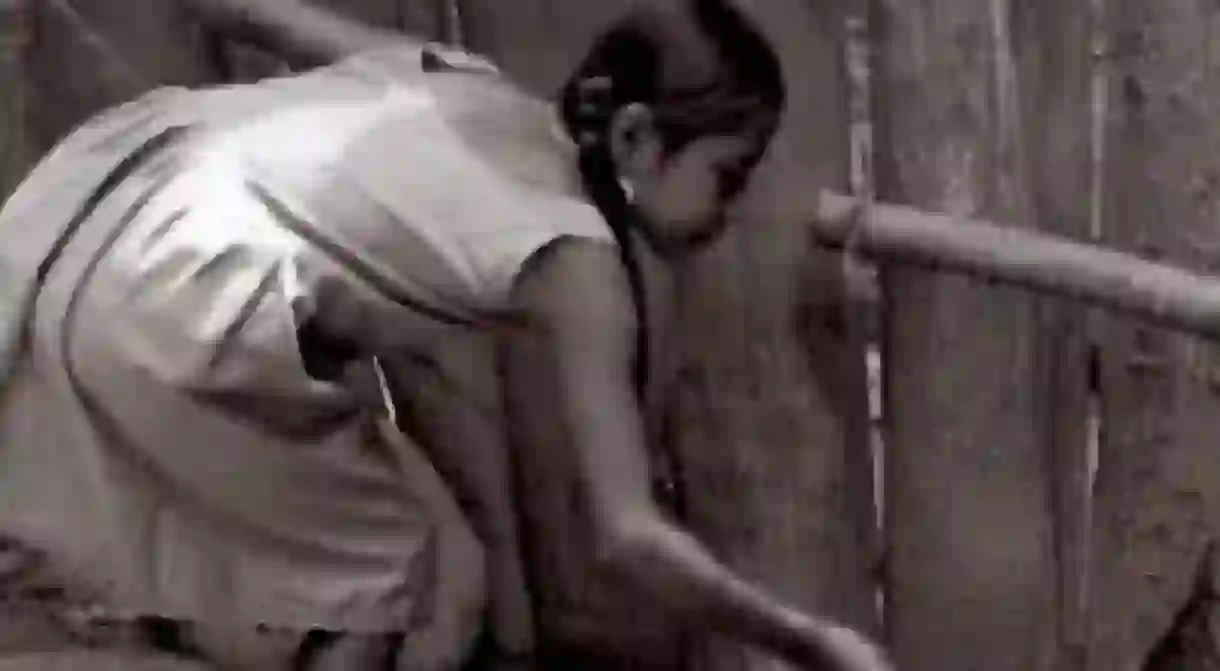Through The Eyes of Lola Alvarez Bravo

“If my photographs have any meaning, it’s that they stand for a Mexico that once existed” – Lola Alvarez Bravo
Lola Alvarez Bravo was an accomplished photographer and female revolutionary, alongside Frida Kahlo and Tina Modotti, in a post-revolutionary Mexico that was abrasively but ever slightly changing. At a time when Mexico was on the brink of a cultural renaissance, Bravo was a female pioneer figure with camera-in-hand documenting the real life around her, then displaying it through curated photographs and photomontages.
As an orphaned child shuttled from Jalisco to Mexico City, Bravo’s photography trade began there, when she married Manuel Alvarez Bravo, who taught her the skills and trade of photography. Together the married couple enjoyed this pastime for years, eventually opening a home gallery in 1927. Shortly after, Lola became interested in areas of photography and concepts that Manuel was not, and began to shoot independently. With this, the first metaphorical stick was poked into their relationship wheel.
As a free-spirited woman with her own ambitions, Lola disregarded her husband’s jealous wishes, that she merely aspire to be his assistant, and instead she continued her independent photography practice. The couple separated in 1934.
At the time, women in Mexico were not to be separated from their husbands – it was something uncommon, and women were shunned for taking this point of view. However, luck was on the side of Lola Alvarez Bravo, and shortly after her separation she attained a job cataloging photographs for the Department of Education, where she met the Minister of Education – an encounter that led her to a position as chief photographer for El Maestro Rural (The Rural Teacher), a progressive publication for teachers.
As Bravo was finding her own path, she was also documenting it step-by-step through her photography lens. Many of her views and focal points lay outside the boundaries of her ex-husband and patriarchic Mexico. Lola was developing photos, alongside her reputation, as a modernist and street photographer at a time when women in Mexico were not commonly seen in the street, but instead in the home. Lola Alvarez Bravo defied all connotations of what a female artist should and could be. She challenged the perception Mexico had placed on the role of women and she historically overcame them.
Lola Alvarez Bravo took positions of stature that eventually brought her to the point of running her own gallery in Mexico City between 1951-1954. Her gallery became the first and only Mexican gallery to exhibit the artwork and first solo show of her friend, Frida Kahlo. Soon to follow, in 1964, Bravo’s own solo show was hosted at the Museo Del Palacio de Bellas Artes in Mexico City.
Much of Lola Alvarez Bravo’s content showcased compassion and focused on the people of Mexico – the poverty stricken, the prostitutes and religious scenes that played out in the world around her. Bravo had a strong interaction with her public, which is intimately reflected in her photographs.
Throughout her life, Lola Alvarez Bravo had the ability to use her photography skills in a myriad of progressive ways. Not only was she the first professional woman photographer in Mexico, she was also a commercial photographer and personal portraitist. She introduced the concept of photomontages to the traditional photo world. She was a teacher, as well as a beloved friend to many writers and artists. Lola Alvarez Bravo was the unsung heroine and vital feminist force in Mexico’s early cultural renaissance, which in turn, gave future generations of women in her country, and around the world, the inspiration to live as they choose.
By: Audra Clemons













